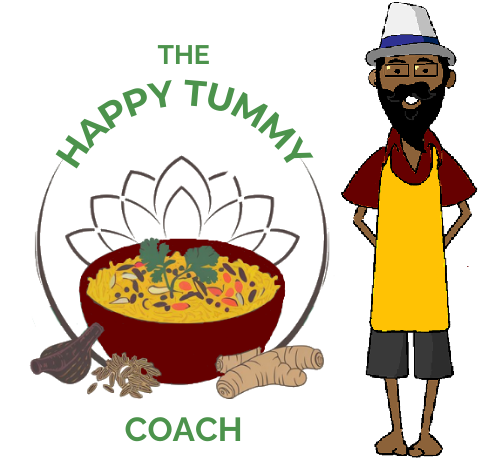“Every act of eating, is a choice between disconnection and harmony, between chaos and alignment. Food is not just sustenance; it is the path back to wholeness.”
Introduction
In a world driven by convenience, the foundational relationship between food, self, and community has drastically shifted. Once, food was an integral part of our lives and a powerful means of connection—to our bodies, each other, and the natural world. Today, however, food is often reduced to a mere commodity, a trend that has led to profound effects on holistic wellness, mental health, and our relationships with nature. This post dives into the historical context of our food practices, the road we traveled to reach this space of Disconnect, and a clear call to Reconnection, through one of our most fundamental and ingrained lifestyle habits – Food: What and How we eat.
1. The Historical Context of Food Practices
1.1 Traditional Relationships with Food
Historically, food was more than just sustenance; it was the heartbeat of culture and community. Through shared meals and traditional food rituals, families and communities bonded, reinforcing social structures, family ties, and spiritual practices. Food practices reflected the values of entire societies—each meal was an expression of gratitude, purpose, and deep connection. Across cultures, food was a medium of exchange, celebration, and spiritual reflection, creating a rich tapestry of tradition passed down through generations.
1.2 Ancestral Wisdom: Food and Well-being
Our ancestors understood that the kitchen was central to health and balance, directly influencing our physical health, emotional stability, and spiritual alignment. They engaged in communal food preparation, cultivated their own sources of nutrition, and ate in harmony with the seasons. In doing so, they cultivated a relationship with food that was deeply attuned to nature’s rhythms, creating a dynamic that supported both personal well-being and the broader health of the community. This approach underscored the belief that food was not only fuel but also medicine, an integral part of maintaining balance across body, mind, and spirit.
2. Disruption by Industrialization
2.1 The Shift to Convenience and Separation from Source
The advent of industrialization revolutionized food systems, prioritizing efficiency and profit over quality, tradition, and connection. In a world shifting towards rapid urbanization, food began to be mass-produced, packaged, and distributed on a massive scale. This shift encouraged people to rely on processed foods, distancing themselves from the natural sources of their sustenance. Over time, society moved from hands-on cultivation and preparation to consuming ready-made foods—an approach that values convenience over connection. Today, there is a generation walking around who do not know what a cow looks like, or that it is the slaughtered cow that is the source of their beef burger or steak. They only know the beef products they buy in stores and food outlets. This is true Disconnect.
2.2 Health and Wellness Implications
This shift has fundamentally altered our relationship with food, with serious implications for health and wellness. Processed and refined products have largely replaced whole, clean, nutrient-dense and nourishing food, leading to a rise in chronic health conditions that are becoming more and more normalized and medicated as ‘a part of life.’ The convenience of pre-packaged and fast foods has come at the cost of vital nutrients, traditional practices, and, importantly, a lost sense of connection to the act of eating itself. As a result, many today are grappling with health issues that could be prevented and reversed by a return to mindful and intentional food choices.
3. The Role of Science and Corporate Influence
3.1 Science as a Tool of Corporate Interests
In our search for solutions, we often turn to science for guidance on nutrition and wellness. However, the field of research is not immune to influence, as corporate agendas frequently shape study outcomes. Much of today’s dietary research is funded by industries with vested interests, often resulting in skewed findings that prioritize profit over public health. This manipulation has led to widespread confusion and mistrust about what constitutes healthy eating. Nutritional science, once a tool to inform and empower, has been appropriated as a marketing device, creating a disconnection from traditional wisdom.
3.2 The Deepening of Disconnection
The increasing commodification of food has led many to distrust the very systems designed to keep them healthy. People are bombarded with conflicting information, overwhelmed by the dizzying array of diets, fads, and conflicting advice. Rather than empowering individuals to make conscious food choices, this dissonance only serves to deepen the disconnect, fostering a society that is isolated from its food, communities, and itself.
4. Reconnecting with Food: A Path to Wholeness
4.1 Embracing a Mindful Approach to Food
The journey back to wholeness begins with a conscious choice to reconnect with our food; what we feed into our bodies . . . which becomes our actual bodies and brains. This reset requires a shift in how we view eating—not just as an act of survival but as an act of reverence and self-care. Mindful eating practices allow us to cultivate presence and intention, turning each meal into an opportunity to deeply connect with our Being – our physical body, emotional body, ancestral lineage, psychological body, nervous systems, spiritual body and Earth Mother. By slowing down, expressing gratitude, and being present with each bite, we begin to heal our disconnection and foster a more harmonious relationship with food, self, others, Earth, and spirit/soul.
4.2 Rediscovering Traditional and Sustainable Practices
Returning to traditional practices offers a powerful way to bridge the gap created by industrialization. By choosing locally sourced, seasonal ingredients, we not only support our bodies’ nutritional needs but also align with the Earth’s natural cycles. Preparing meals with intention, as our ancestors did, allows us to build a stronger relationship with the foods we consume and the bodies we feed, cultivating gratitude and a sense of unity with nature and self. This mindful approach encourages a lifestyle that is both sustainable and nurturing, fostering a deeper connection with the planet and those around us.
5. Conclusion
Reconnecting with food is about much more than simply altering our diet; it’s about restoring a fundamental relationship with ourselves, others, and the earth. This journey requires a willingness to explore and honor the traditions that we have lost, to approach each meal as an act of self-care, and to choose foods that align with our values. By fostering this relationship, we nourish our bodies, cultivate emotional and spiritual resilience, and support a balanced, harmonious existence that resonates with the essence of holistic wellness.
Through mindful and intentional choices, we can reclaim our connection to food, transforming it from a commodity to a cherished part of life that feeds not just the body but the soul.
Click Here to Begin Your FREE 12-Day Journey to Reconnect with your Self, by Nurtuting Your Relationship With Food . . . From the Comfort of Your Own Kitchen! Start Now
References
- The Influence of Industry Sponsorship on the Research Agenda: A Scoping Review
-
How food corporations manipulate you into eating more junk food
-
Food industry sponsorship of academic research: investigating commercial bias in the research agenda
Further Reading
- Mintz, S. W. (1985). Sweetness and Power: The Place of Sugar in Modern History. Penguin Books.
- Pollan, M. (2006). The Omnivore’s Dilemma: A Natural History of Four Meals. Penguin Press.
-
Nestle, M. (2002). Food Politics: How the Food Industry Influences Nutrition and Health.
- T. Colin Campbell PhD. (2016) The China Study: The Most Comprehensive Study of Nutrition Ever Conducted






